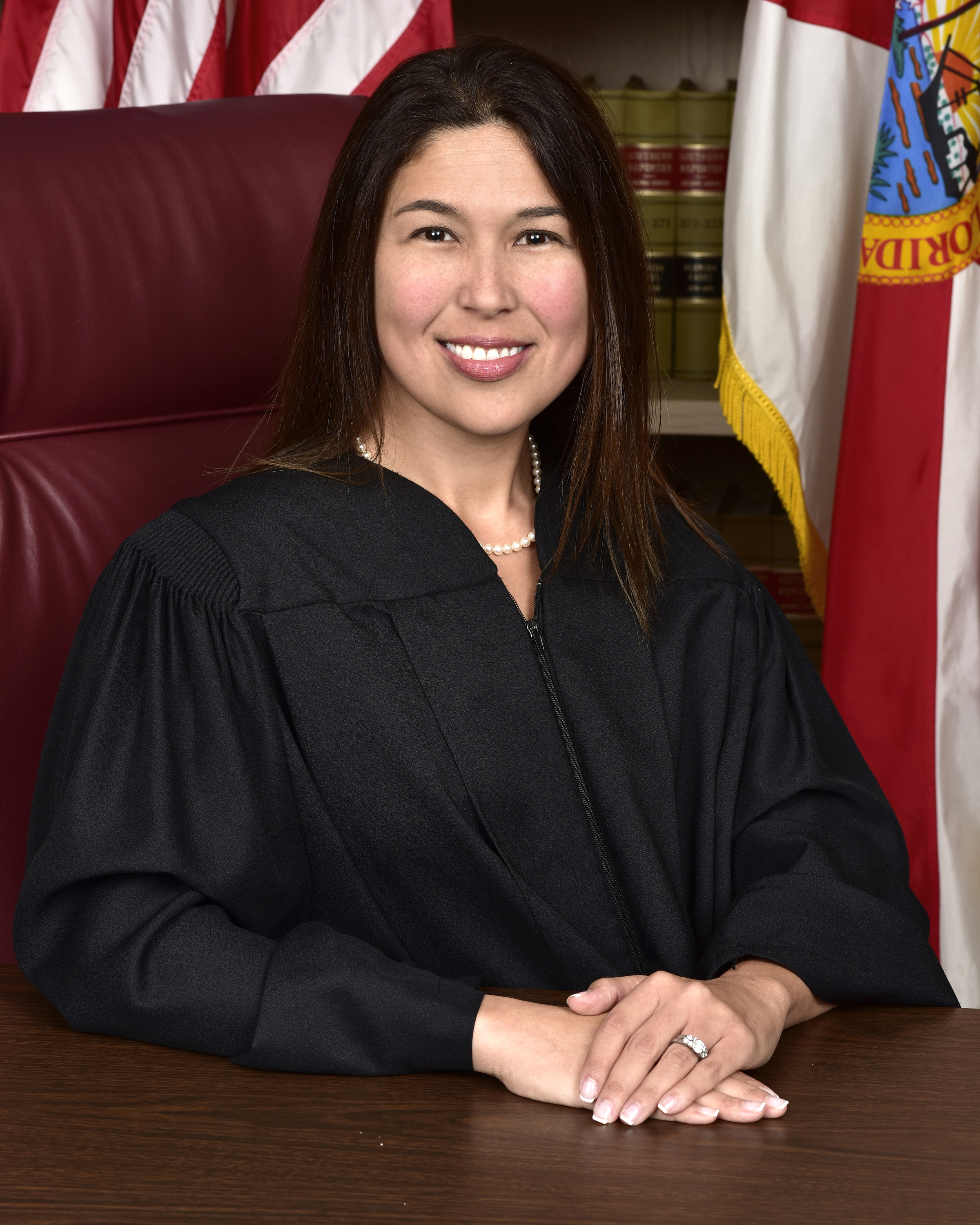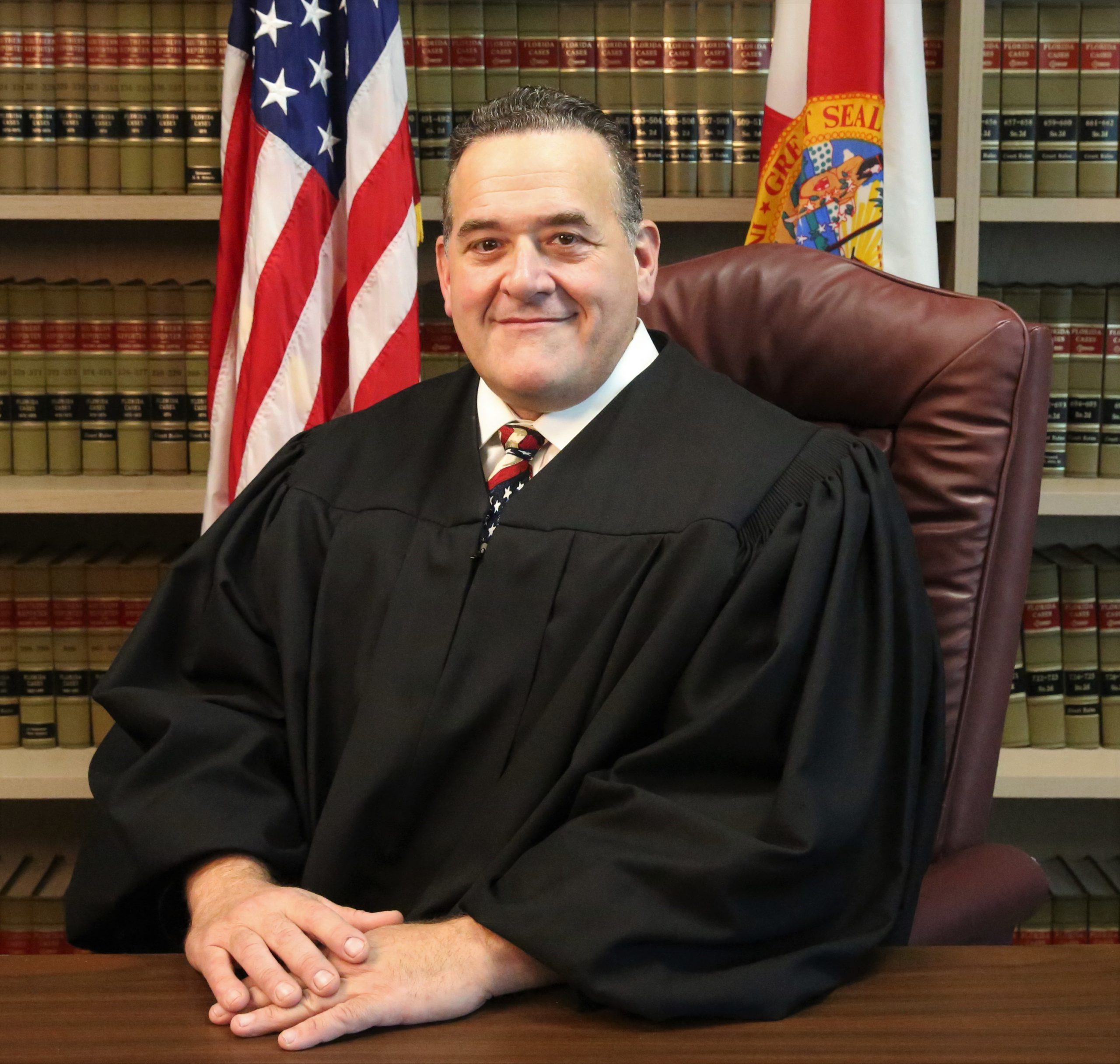General Probate Division Procedures
Clarification of Submission of Orders Procedures
______________________________________________________________________
Guardianship and Guardian Advocacy
Guardianship and Guardian Advocacy are legal relationships between guardians and wards (the subject of the guardianship or guardian advocacy), created by order of a court with proper jurisdiction. In Florida, the Probate Court has exclusive jurisdiction over the appointment of guardians for minors, incapacitated adults and developmentally disabled adults under guardian advocacy. Individuals or corporations wishing to serve as guardians and guardian advocates (see Florida Statute 393.12) are subject to the same powers, duties and responsibilities delineated in Florida Statutes chapter 744 or those defined by court order under s.744.
A guardianship may be created for the person of the ward, for the property of the ward or for both. Guardianship of the person of a minor child does differ from custody of a minor. The Probate Court is without authority to grant guardianship of the person of a minor child with a living parent to anyone other than the parent(s) without the consent of or without giving notice to each living parent. The guardian of the person need not be the same person as the guardian of the property, although one person may certainly serve as both. There may be two or more guardians, who would be referred to as co-guardians.
According to the Florida Rules of Court Probate Rule 5.030, to obtain guardianship of a minor or of an adult suffering from the infirmities of aging or other person who has reached the age of majority, you must hire an attorney—guardian advocacy under Florida Statute 393.12 pertaining to the developmentally disabled is the exception to this rule. For a minor, the attorney will file a petition and an application on behalf of the proposed guardian. In the case of an adult, the attorney will file a Petition for Incapacity explaining the supposed incapacity and an Application for Appointment as Guardian on behalf of the person wanting to become the guardian. Once the Petition for Incapacity is filed, the Court will appoint an attorney to meet with and protect the rights of the alleged incapacitated person. The Court will also appoint three Examining Committee members to assess the proposed incapacitated person and submit a written report delineating the alleged incapacitated person’s abilities.
In the 17th Judicial Circuit, before the guardianship matter can be heard, all proposed guardians and guardian advocates must undergo a Background screening to determine if the applicant has a disqualifying history or undisclosed criminal history. The results background screening must come directly from the Florida Department of Law Enforcement and Federal Bureau of Investigation to the ORI (FL048094Z) designated for family guardians. If a disqualifying conviction or withhold of adjudication or an adjudication of dependency is revealed, the attorney or proposed guardian advocate will receive a letter explaining that there is a disqualifying event. Florida Statute 744.309(3) states, “No person who has been convicted of a felony or who, from any incapacity or illness, is incapable of discharging the duties of a guardian, or who is otherwise unsuitable to perform the duties of a guardian, shall be appointed to act as guardian. Further, no person who has been judicially determined to have committed abuse, abandonment, or neglect against a child as defined in s. 39.01 or s. 984.03(1), (2), and (37), or who has been found guilty of, regardless of adjudication, or entered a plea of nolo contendere or guilty to, any offense prohibited under s. 435.04 or similar statute of another jurisdiction, shall be appointed to act as a guardian.”
The court monitor completes a credit check on all applicants desiring appointment as Guardian of the Property in 17th Judicial Circuit. If a proposed guardian’s credit history reveals no credit concerns, a document stating there are no problems is placed in the Court file. However, if the applicant has questionable credit he or she is asked to explain, in writing, the reasons for the impaired credit. After receiving the explanation, a document explaining the proposed guardian’s credit is filed along with the proposed guardian’s statement.
Under Florida Statute 393.12, a person desiring to become the guardian advocate of a person with a developmental disability is not required to retain the services of an attorney. However, a person with a developmental disability may not be presumed to be incapacitated simply because he or she receives residential services. Just as an attorney is appointed for an alleged incapacitated person, the Court will appoint an attorney to represent the proposed ward in a guardian advocacy. Alleged incapacitated persons and developmentally disabled persons must be present at the adjudicatory hearing unless he or she doesn’t care to attend, or the alleged incapacitated person’s attorney waves their attendance or unless good cause can be shown why the person shouldn’t be in attendance.
Within sixty days of the date of Letters of Guardianship, the guardian/guardian advocate for the person must file an Initial Plan and Proof of Service of Initial Plan. If the guardian is also Guardian of the Property, he or she must also file an Inventory listing all of the ward’s property (real and personal). Annual Plans, along with a Physician’s Report, must be filed annually for those who are Guardians of the Person. Those acting as Guardians of the Property must also file Annual Accountings.
Guardians and guardian advocates are appointed to protect the ward and his or her property, as well as to advocate for the ward. Wards retain the right to be treated humanely, respectfully and with dignity. They also have the right to have visitors, to be free from discrimination, to be educated, receive services, privacy, and to be as independent as possible.
Judges currently presiding in the Probate Court are:

NATASHA DEPRIMO

KENNETH GILLESPIE (Admin. Judge Probate)

NICHOLAS LOPANE
Baker Act
The Baker Act is named after Maxine Eldridge Baker, the former Dade County representative for the Florida House of Representatives who sponsored and championed the legislation for seven years before its passage in 1971 and enactment in 1972. Ms. Baker believed that Florida’s previous Mental Health laws (which, prior to 1971, hadn’t changed significantly in almost a century) deprived citizens with mental health problems of their freedom by committing them to institutions and diluting the right to due process even when there was no indication they were a danger to themselves or others.
People with mental illnesses are entitled to individual dignity, treatment without delay or without consideration of the person’s inability to pay, express and informed consent, humane and skillful treatment (medical, vocational, social, educational and rehabilitative) suited to the person’s needs, the right to communicate with others (be it in person, by phone or mail) and report abuse, the right to vote in elections if they are qualified voters, the right to keep their personal things (including clothing) if they are deemed safe and not prohibited for medical reasons, the right to have your case reviewed by the court to determine if your detention or denial of rights or privileges is just (habeas corpus), discharge and treatment planning, the right to be free of sexual misconduct of staff members, the right to a representative, the right to confidentiality and 1the right to be free of violations of the rights or privileges in the Baker Act.
The Baker Act delineates the conditions under which a mentally ill (or person presumed to be mentally ill) can be forced to undergo an involuntary examination in a local crisis facility or hospital. The patient needing to be Baker Acted must be a danger to himself or others or at risk of self-neglect as a result of being mentally ill and be unwilling or not able to give consent for voluntary treatment. Involuntary assessment can take up to 72 hours and can be initiated by: a spouse, guardian, relative, service provider having personal knowledge of the patient’s alleged mental illness willing to file an affidavit/petition explaining why the patient should be involuntarily assessed. If the patient being involuntarily assessed is a minor, the parent, legal guardian/custodian or a service provider must complete the petition. The petition must be filed in the office of the Clerk of Court within the county where the alleged mentally ill person is located.
A healthcare provider or law enforcement officer who believes the patient meets the Baker Act guidelines may also initiate the involuntary examination process. A law enforcement officer who believes the patient meets the criteria may themselves transport the person to a crisis facility.
If, at any time during the 72-hour assessment, it is determined that the patient is not a threat to himself or others, he or she must be released.
However, the patient can agree to additional inpatient treatment or may be referred for outpatient treatment. If the patient is unable or unwilling to consent to placement and additional inpatient care is needed the healthcare providers can file a petition to continue the patient in involuntary placement and a hearing on the petition will be held within five days. An attorney will be appointed for any patient against whom a Petition for Involuntary Placement is filed. The patient may be held (against his will) in a hospital for as long as six months while he or she receives treatment for mental illness if the court, based on expert testimony, determines the patient needs involuntary treatment.
If a patient is found incompetent to consent to treatment, the court will appoint a guardian advocate (Florida Statute 394.4598) to make decisions pertaining to health and mental health issues if an adjudication of incapacity has not already been entered and the patient does not have anyone who has the authority to make those decisions. The guardian advocate is required to take the court-approved course prior to exercising any authority. The guardian advocate is discharged upon the patient’s discharge from involuntary to voluntary treatment or upon discharge from involuntary treatment.
Marchman Act
From 1970 until 1993, Florida had two statutes (Chapter 396 and 397) regulating varying elements of substance abuse and addiction. Since many people with addiction problems abuse more than one substance, former Florida State legislator Steven Wise authored legislation that combined the two statutes so that issues such as involuntary and voluntary admissions and the intent of the legislator were clearly addressed. Reverend Hal Marchman was recognized for his hard work in advocating for services for substance abusers when the legislation was named after him.
The person petitioning for involuntary assessment and stabilization on behalf of an adult must be a spouse, relative, guardian, the director (or someone acting on behalf of the director) of a licensed provider, a private practitioner or three adults. The petitioner(s) must have personally witnessed the respondent’s (the alleged impaired person) substance impairment and must file the petition with the Clerk of Court in the county where the respondent is located. If the respondent is a minor, the petition must be completed by the parent(s), legal guardian, legal custodian or a licensed service provider.
Once the petition is completed, the clerk will forward the petition to the court. In cases involving a minor respondent, an order appointing an attorney for the minor goes to the judge at the same time the petition for involuntary assessment is forwarded to the court. If the respondent is an adult, the court will decide (based on the petition) whether it is appropriate to appoint counsel for the respondent. If the judge enters an order, the clerk will call the petitioner to pick up the order, which must then be delivered to the sheriff’s office for service upon the respondent or in the case of a minor, the parents, guardian or legal custodian—the petitioner is not permitted to personally serve the order and the cost of service is forty ($40) dollars and must be paid in cash, certified check or credit card. A copy of the petition and summons (issued by the court and setting a hearing to be held within ten days) are given to adult respondents or the adult respondent’s guardian or in the case of a minor to the minor respondent’s parent, guardian, custodian and attorney.
The court may also, based on the petition, enter an order requiring a law enforcement officer to take the respondent into custody and deliver him to a licensed service provider. The court will hear all relevant testimony at the aforementioned hearing and unless the court believes the respondent’s attendance would be self-injurious, the respondent must be present. After the court has heard all of the evidence, the court will decide if it is reasonable to believe the respondent meets the criteria for involuntary admission. If, at some point after being committed for involuntary admission, the licensed service provider believes the respondent no longer meets the requirement for involuntary treatment the provider can release the respondent, but must also notify all of the persons the court requires.
